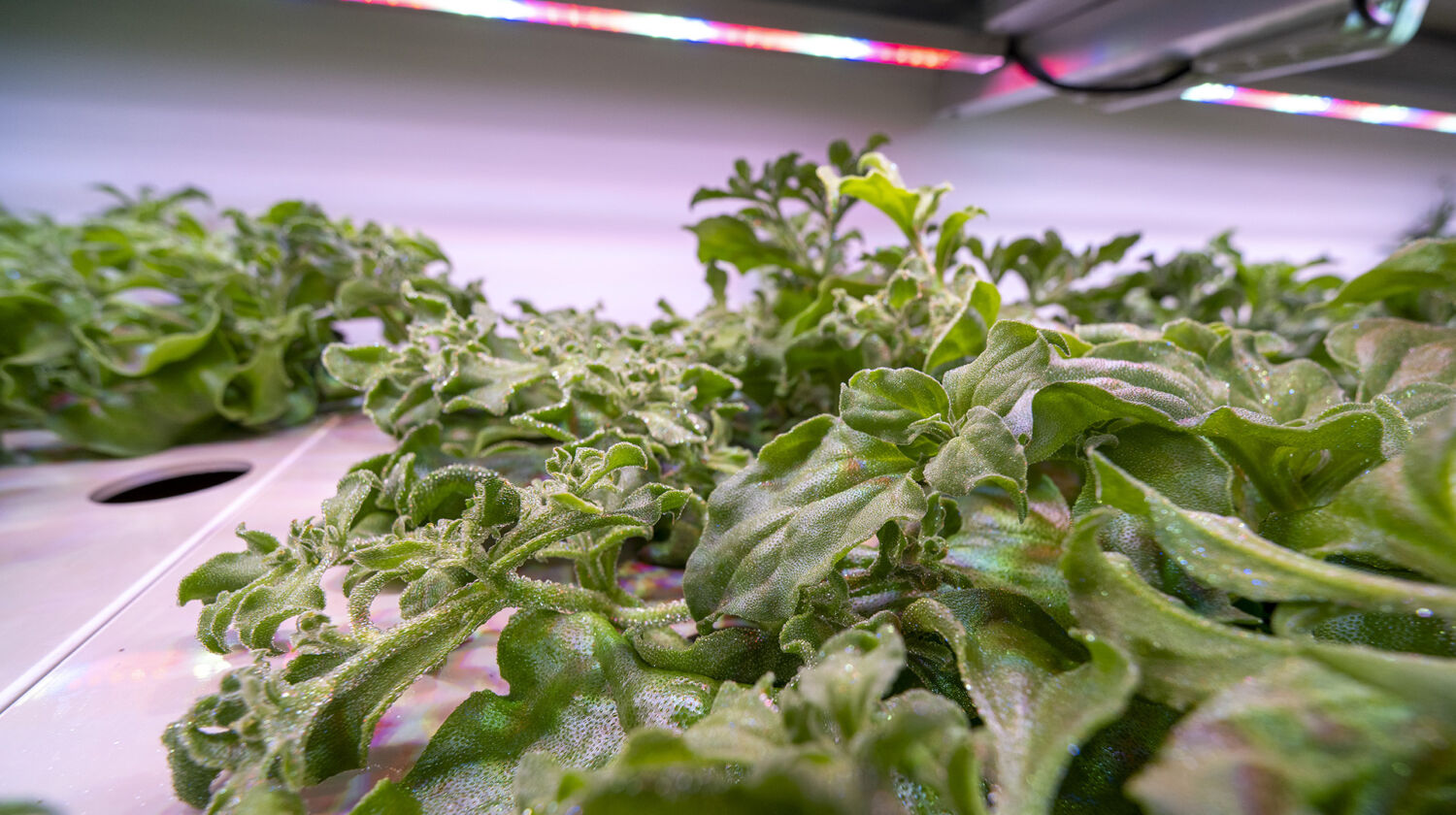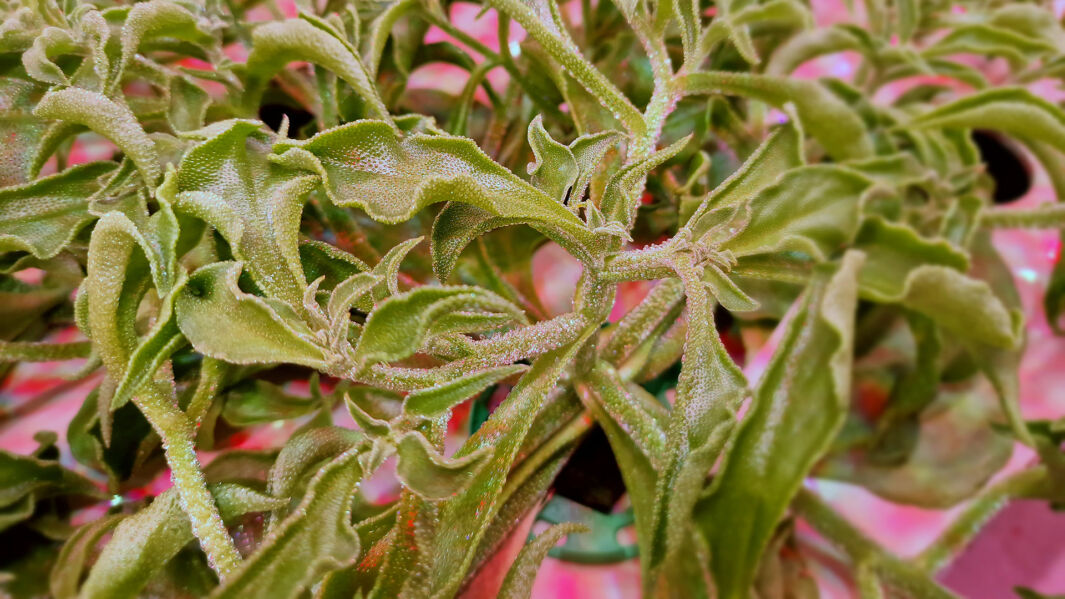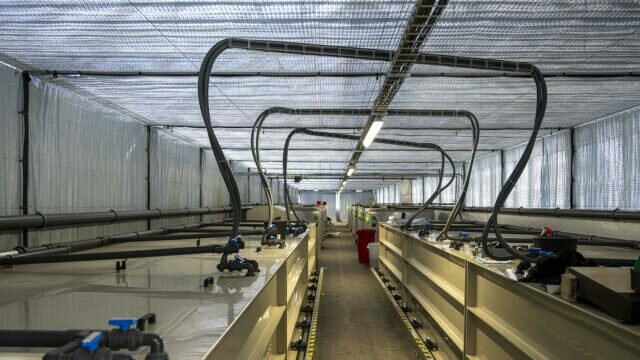Cultivation in aquaponics
At the aquaponic farm in Kale, Ice Plant is grown for testing and use in the aquaponic system. The main reason for cultivation is the market potential and the added value for the whole system. The plant shows the ability to absorb sodium, which is contained in the aquaponic nutrient solution from fish in high concentrations. However, the high level of sodium in the nutrient solution is unnecessary for the growth of leafy vegetables and herbs and only increases the conductivity, which is not desirable in an aquaponic system. Thus, incorporating Ice Plant into the seeding plan can only provide benefits in an aquaponic system; with increased removal of unwanted sodium ions, we can expect lower water turnover and better thriving of other plants that will not be stressed by the salinity from fish stocking.
The Faculty of Horticulture at Mendel University, with which Future Farming has a long and intensive collaboration, has published an article entitled The Effect of the Daily Light Integral and Spectrum on Mesembryanthemum crystallinum L. in an Indoor Plant Production Environment. The co-author of this paper is Ing. et Ing. Kateřina Patloková, Head of Research and Development at Future Farming.
Healing properties
In addition to its aesthetic and economic potential, Ice Plant also has medicinal properties. In traditional African medicine it is used to treat skin problems, fever and headaches. Among its beneficial contents, for example, is its relatively high content of antioxidants, which contribute to its potential medicinal effects.
Overall, the Ice Plant is a fascinating plant with unique properties that is ideal for gardens and succulent collections, but also a welcome addition for growing in the specific conditions of an aquaponic farm. With research and testing at Kaly aquaponic farm, the Ice Plant opens up new possibilities in the field of sustainable agriculture and the use of plants in specific ecosystems.
Diamond lettuce from Farmia Food
We are excited to announce that we plan to offer Ice Plant as an exclusive product in the gastronomy industry under the name “Diamond lettuce”, which will be supplied to the market by our subsidiary Farmia Food, the largest distributor of aquaponic foods in the Czech Republic. This edible plant is not only a delicious treat for the palate, but also a healthy and sustainable element in the diet. Diamond lettuce has a slightly salty taste and is sure to appeal to everyone.


















